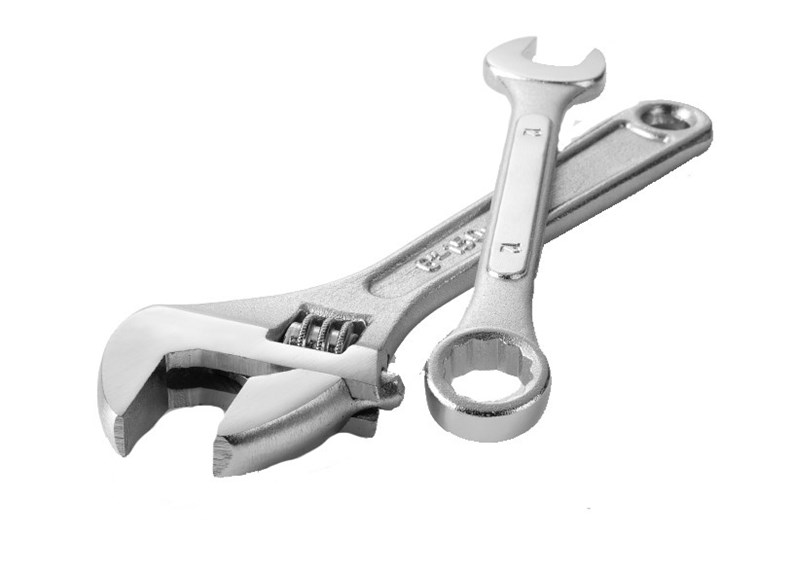Sturdy and healthy trees, lush grass and beautiful plantings enhance the appearance and value of any building. Part of the yearly lawn maintenance cycle in any homeowners association or condominium development is keeping the overall landscape in tip-top shape. The best way to ensure the health and attractiveness of your grounds is to follow fall and winter groundskeeping schedules and procedures.
Landscaping experts agree that condos and co-ops should follow a maintenance schedule that prepares grounds so that they can survive the wet autumns and freezing winters typical of our region. Some condo and co-op residents, however, might not understand why these procedures are necessary and wonder how much it will all cost.
A Good Place to Start
Before hiring a contractor, a board should know what services they want and/or need. Many fall and winter services will improve the health of their association's grounds, but are not entirely necessary if their budget does not allow for it.
"Once specifications have been devised, the association should invite several landscape maintenance companies to bid on the contract," says Dawn M. Greenleaf, landscape designer and consultant of Greenleaf Landscape Systems & Services in Red Bank. "That will enable them to tailor their services to the property's specific needs. It's also extremely helpful to check the landscaper's references and even visit some of the company's current contracted properties before making a decision."
Regardless of which company your association settles on after all the bids are in and assessed, there are a number of things most professionals include in their fall/winter maintenance plans. Landscape experts will generally agree that a good place to begin in the fall is with removal of fallen leaves from flowerbeds to minimize the loss of mulch. Next, your soil's pH should be tested to determine what type of dormant fertilization should be applied in late fall.
"This will establish solid root growth and will aid in early spring 'green up,'" says Michael Branch, chief operating officer of DuBrow's Nurseries Inc. of Livingston.
"A lawn needs to be on a regular fertilization schedule for the year-round health and appearance of the turf," instructs Chris Marino of C&M Landscape Contractors Inc. in Mahwah. "Mulch should be installed to all bedded areas once per year (in the spring) to provide a protective barrier to all trees, plants and other bedded materials."
"Mulch protects these items in the winter by keeping them warm and shielding the root system from cold," he adds. "In the summer, it provides a cooling system and keeps moisture in."
Matthew Ettere, owner and sales manager of Union-County-based Perfection Landscaping Inc. agrees.
"Beyond the typical leaf clean-ups and final maintenance, fall and winter months are the best time to build and repair damaged lawn areas and build up the root system of the turf through over-seeding, aeration and de-thatching," he says. "Winter fertilizer and lime applications are also key."
Fall is also the time to plant the seeds for next year's green areas, according to Yan Troizier, senior plantcare division manager at A Growing Concern in Cranbury. "Seeding is usually done starting in late August and early September" to take advantage of milder temperatures and prevent seedlings from baking in the high summer sun.
Branch recommends additional fall and winter maintenance strategies, such as: establishing a deer repellant program to protect plants and trees from hungry (and destructive) deer; applying an anti-desiccant such as "Wilt-Proof," which will help plants survive "winter burn"; applying gypsum to curb lines and sidewalk edges to help reduce damage to these areas that often get ruined by de-icing products; performing rejuvenation pruning; and simply visiting the grounds in winter to clean up dead leaves or fallen branches from beds or lawn areas. Also, according to Marino, trees should be inspected once a year so that if problems such as parasites or blight are found, the appropriate treatments can be applied before it's too late.
Swimming pools and tennis courts should also receive maintenance in the fall and winter months. The windscreens and nets used during playing season should be removed from tennis courts, whereas pools should be drained and properly winterized to avoid damage from freezing temperatures, according to Ettere. Both areas should be policed during the winter months for garbage and organic debris.
Price and Procedure
Although full- or part-time association or building staff might be able to do some basic landscaping maintenance and upkeep year-round, for the major seasonal transitions it's often wiser in the long run to bring in a professional landscape contractor with specific expertise and licenses to do the job. Splitting tasks up between on-site and off-site, non-professional and professional can work against an association's purposes, says Greenleaf. "Too many cooks spoil the broth. One point of contact [between landscaper and HOA] should be established, and all matters of communication with the landscaper should be handled through that contact person," she says. "And association members should clearly agree on their expectations for the grounds maintenance company."
Naomi Fisch, board president of Somerset Park, a condominium development in central New Jersey, takes the physical charm of her association's grounds seriously. The 240-unit association hired landscaper Dean Marzocca for an annual contract to provide services each season to keep its 35 acres of grass, flowers and trees healthy and thriving.
"Many people have a hard time accepting that the landscaper takes direction from the management company or the board," says Fisch, "not 240 unit owners with 240 different opinions. Landscaping is a major component of our budget; the biggest problem we typically encounter is that there is a vast difference between unit owners' expectations and the reality of what the budget can support."
Many times, in fact, the association has not budgeted enough for the expenses a year-round landscaping cycle can incur. The most reasonable way to figure out what's necessary to maintain the grounds throughout the year is to invite a landscaping specialist to come and offer suggestions.
"In most cases, some of the suggestions cost the association more money than budgeted for and they may not fully understand the lasting benefits," says Ettere. "It will be up to both the manager and the landscape contractor to convince the association to increase their budgets to accommodate some of the winter services mentioned."
Though they may have a plan for spring and summer grounds maintenance, many associations might not have routine maintenance set in place for fall and winter. These associations might wonder about the costs associated with yearly maintenance. Many landscapers, however, are reluctant to quote actual prices until they have determined several factors: What services are you interested in? How large is the property? How healthy are the grounds already?
"These costs can be based on a per-application, per-acre, or per-job basis," according to Branch. "Some can be done on a time-and-material basis. But it would be difficult to put a fee schedule together as each contractor's costs will vary and in addition the scope of the work will determine the costs involved."
With autumnal briskness creeping into the air and leaves beginning to change color, it's time to think about battening down the hatches in preparation for winter's snow and sub-zero temperatures. With a professional landscaping plan and an experienced team of professionals on the job, your association can count on lush, healthy trees, lawns, and plantings to appear next spring.
Domini Hedderman is a freelance writer and a former property manager.







Comments
Leave a Comment